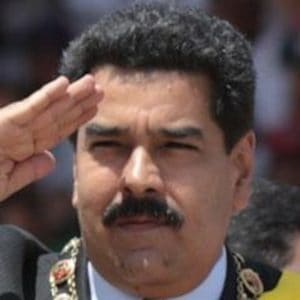 The Iranian minister responsible for information and communications technology, Mohammad Javad Azari-Jahromi, has announced that a cryptocurrency it developed with the ministry’s Post Bank is “ready,” Reuters reports.
The Iranian minister responsible for information and communications technology, Mohammad Javad Azari-Jahromi, has announced that a cryptocurrency it developed with the ministry’s Post Bank is “ready,” Reuters reports.
Iranian State news agency IRNA has reported that the state’s cryptocurrency will be exempted from a ban imposed about a week ago on all other cryptocurrencies in Iran, including Bitcoin.
“The central bank’s (ban) does not mean the prohibition or restriction of the use of the digital currency in domestic development,” said Minister Azari-Jahromi.
Reuters reports that Azari-Jahromi is Iran’s youngest minister and is generally regarded as an innovator. Azari-Jahromi tweeted in February that his ministry was working on a cryptocurrency it would shortly present to banks.
A translation of a tweet by Iranian ICT Minister MJ Azari Jahromi from earlier this year stated Iran would implement the country’s first cloud-based digital currency
در جلسهای که با هیئت مدیره پست بانک در خصوص ارزهای دیجیتال مبتنی بر زنجیره بلوکی داشتم، مقرر شد این بانک اقدامات لازم برای پیاده سازی آزمایشی اولین ارز دیجیتالی کشور را با استفاده از ظرفیت نخبگان کشور به عمل آورد. مدل آزمایشی برای بررسی و تایید به نظام بانکی کشور ارائه خواهد شد.
— MJ Azari Jahromi (@azarijahromi) February 21, 2018
Iran banned cryptocurrencies about halfway through April as part of sweeping controls imposed to mitigate a looming currency crisis. Demand for US dollars and other “safe harbour” currencies has escalated as the rial recently dropped to its lowest ever levels amid rumours of bank insolvency and concerns the US will reinstate sanctions May 12th.
 The ban was part of a suite of foreign exchange controls in the country that have limited where and how many inflating rials Iranian citizens are permitted to exchange.
The ban was part of a suite of foreign exchange controls in the country that have limited where and how many inflating rials Iranian citizens are permitted to exchange.
Iran’s announcement comes as officials in Venezuela are reported to be making rounds promoting their own state cryptocurrency, El Petro, which they began pre-selling February 15th.
Along a similar approach, Venezuelan President Nicolas Maduro explained via Twitter the “El Petro” crypto presale raised 4.777 billion Chinese yuan equivalent to about $735 million dollars US.
A grandes problemas, ¡grandes soluciones! Desde el primer minuto el juego arrancó bien, y arrancamos ganando: 4.777 millones de yuanes o 735 millones de dólares es el resultado inicial de las operaciones de intención de compra del Petro. #AlFuturoConElPetro pic.twitter.com/LoaDgj4rr1
— Nicolás Maduro (@NicolasMaduro) February 21, 2018
The Venezuelan state cryptocurrency is reportedly designed to help the beleaguered Maduro regime bypass US sanctions that have limited the country’s access to markets and financing. El Petro, said Maduro, “reaffirms our economic sovereignty.”
Estamos en la vanguardia tecnológica y económica para superar la especulación de las monedas internacionales que afecta la vida de los venezolanos. El Petro reafirma nuestra soberanía económica. #AlFuturoConElPetro pic.twitter.com/Jo72DQkSLz
— Nicolás Maduro (@NicolasMaduro) February 21, 2018
According to Bloomberg news reporting in January, Venezuelan officials traveled to Qator to seek presale investment in the Petro, but reported no deal made.
Qatar was sanctioned by a Saudi-led coalition last June.
Bloomberg outlined the Venezuelan plan for El Petro:
“Venezuela intends to issue 100 million petros, with about 38 million going to institutional investors in a month-long private pre-sale set to begin Feb. 15…The currency then would be sold to individuals. The oil-rich nation plans to pay public workers in the digital token and to use tax incentives to encourage its use. While the petro would be backed by one barrel of Venezuelan crude, the coins can’t be exchanged for the actual oil.”
Critics point out that claims that each El Petro is backed by a barrel of oil are very difficult to audit. Unlike with Bitcoin, say proponents like Tone Vays, where consumption of electrical value is “baked in” to how the currency is generated in the network according to strict mathematical (algorithmic) controls called “proof of work,” a cryptocurrency with no reliable mining aspect can easily be pegged to thin air.
This leads to concerns that a state cryptocurrency can be just as easily mismanaged as a standard one.

